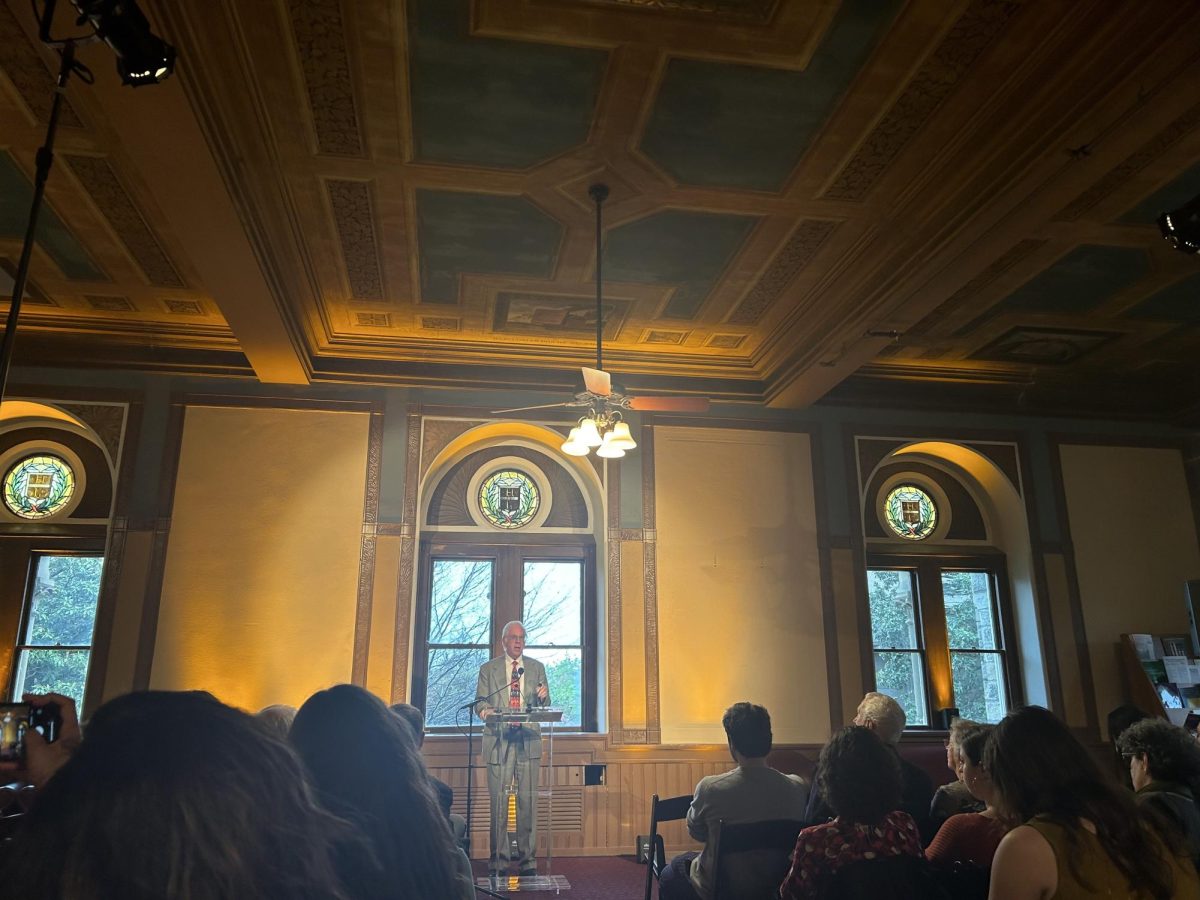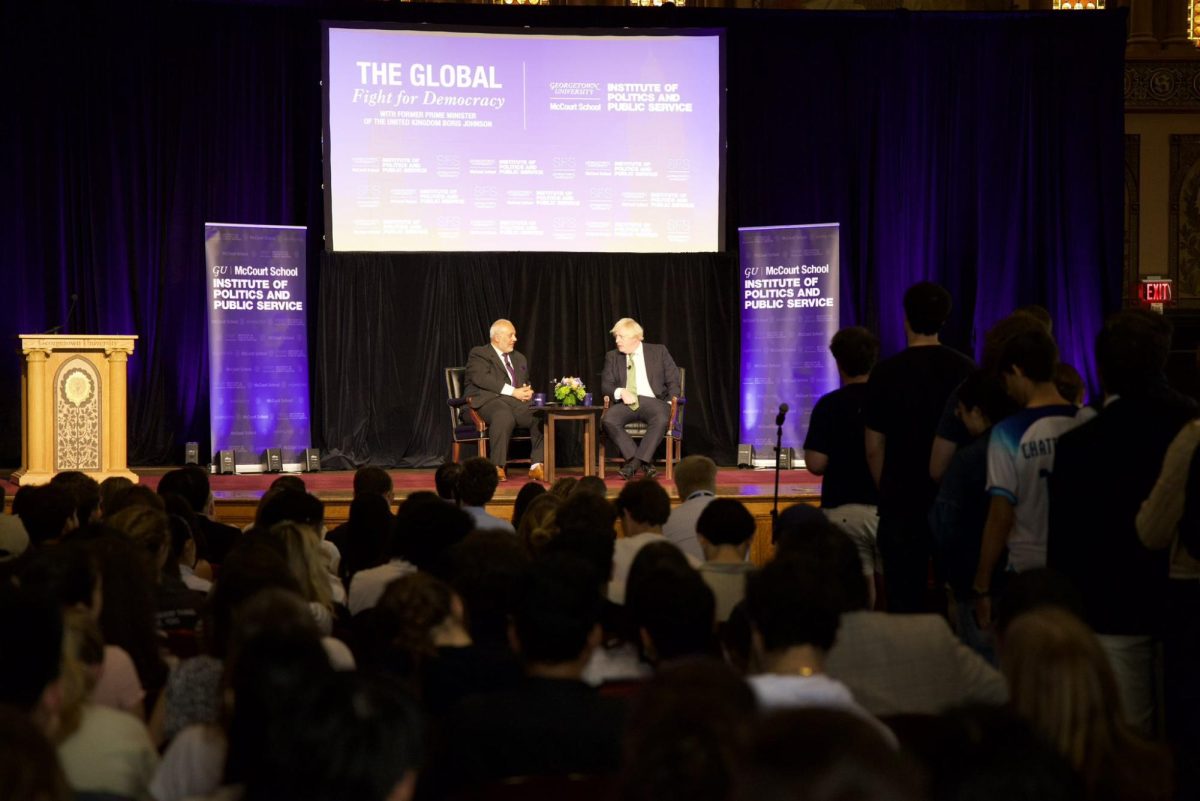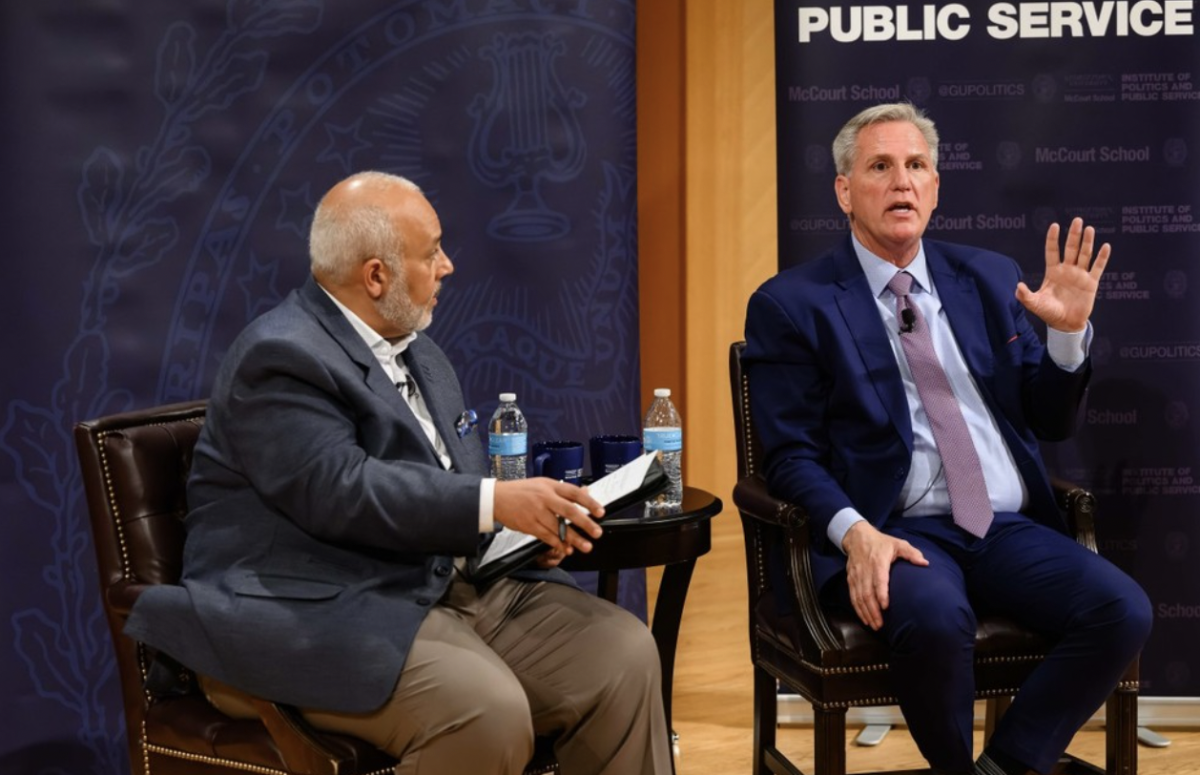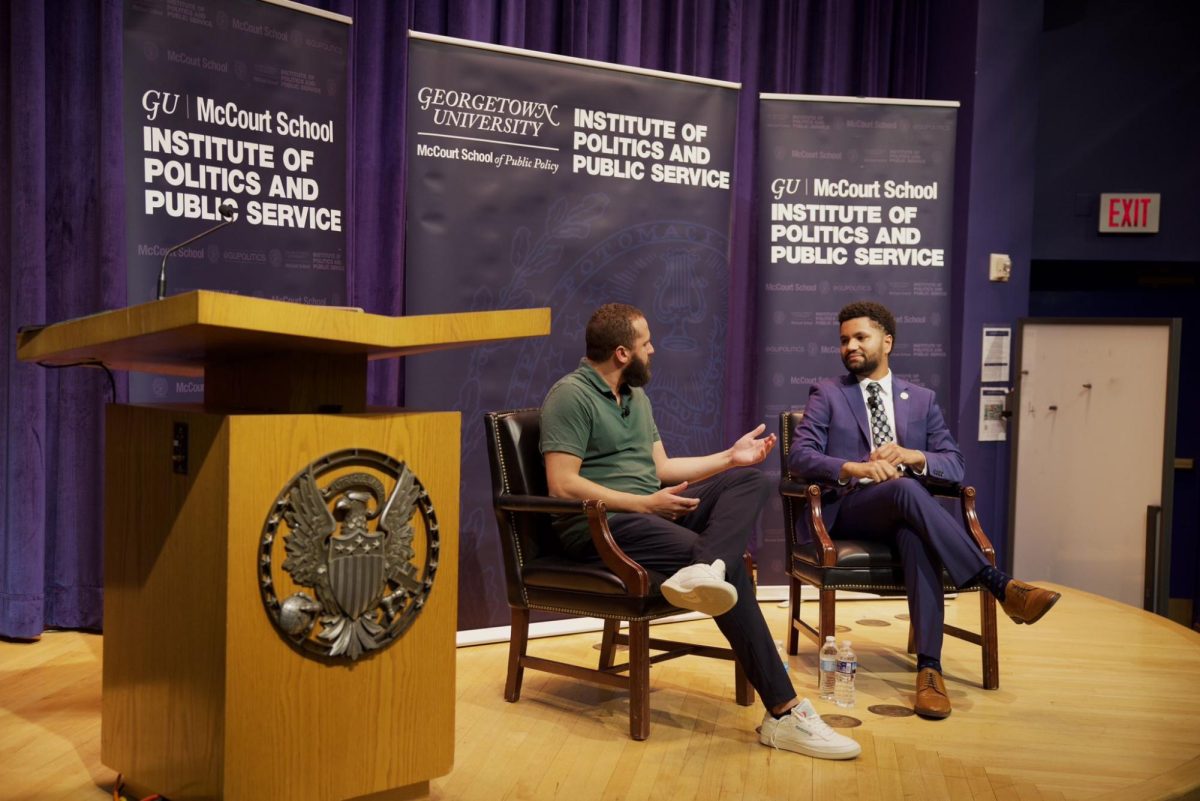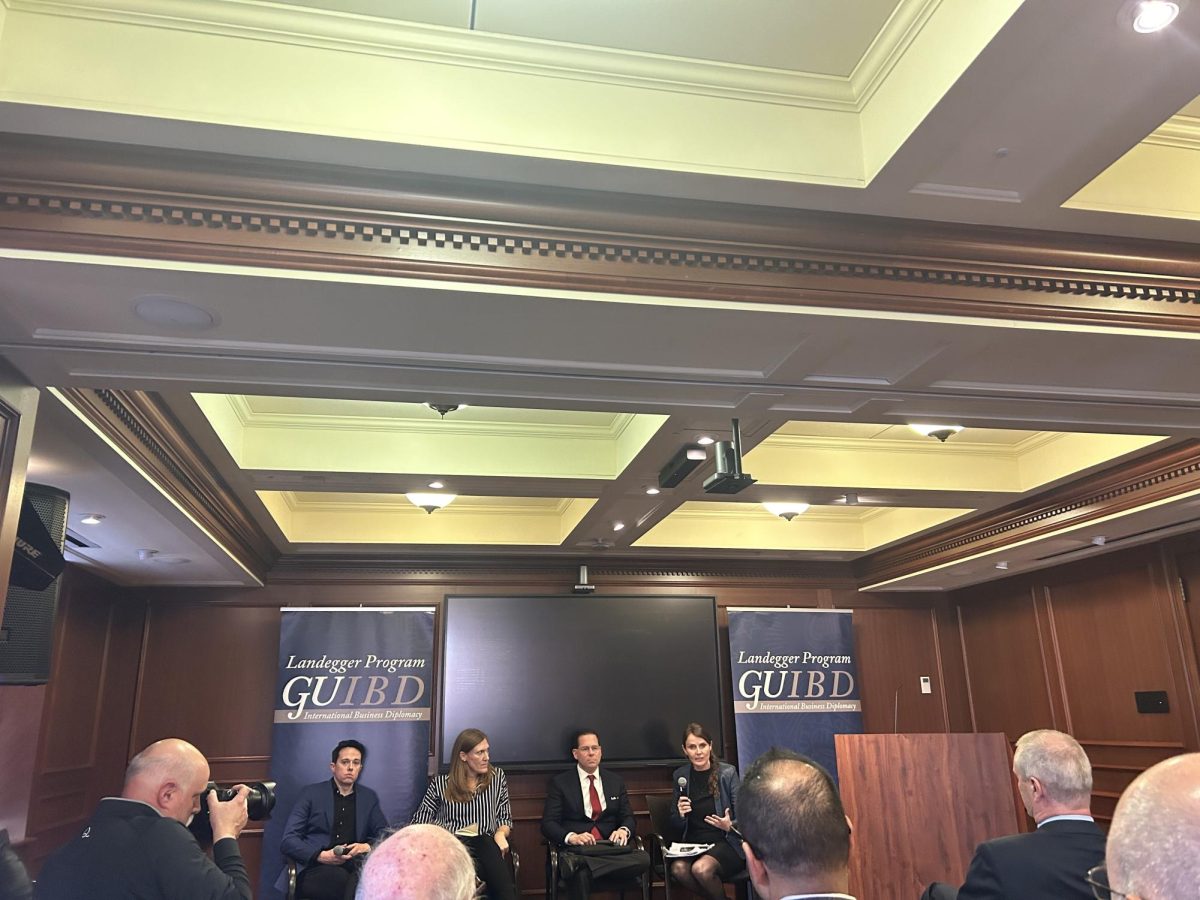Leading international experts deconstructed Latin America’s economic and political narrative within the global sphere and examined the region’s relationship with the United States and the European Union (EU) in a Feb. 12 seminar hosted by the Georgetown Americas Institute (GAI).
Two panels discussed “Why Does Latin America Matter?”, a 2023 report released by the Elcano Royal Institute, a Spanish think tank focused on foreign relations, which analyzed international notions of Latin America as a political failure rife with economic problems. The panels discussed topics such as Latin America’s lack of productivity and growth despite other economic successes and political institutions and issues in the region.
Ángeles Moreno, ambassador of Spain to the United States, delivered introductory remarks, outlining her hopes for the dialogue, adding that Latin America is of great importance to Spain.
“We will be able during these two sessions to understand which prejudices are dismantled. And that is very important for our political action. It’s very important that governments have this information in order to act in consequence to Spain,” Moreno said at the event. “Latin America matters politically, it matters for many reasons. And it has mattered for many years. It matters because it is composed in general by democracies, where the rule of law is generally respected.”
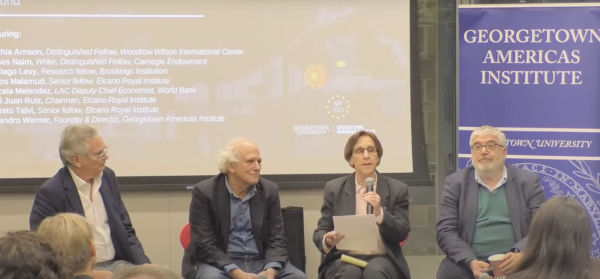
The first panel, which featured Ernesto Talvi, a fellow at the GAI and the Elcano Royal Insitute, Marcela Meléndez, a deputy chief economist for the Latin American and Caribbean region at the World Bank and Santiago Levy, a senior advisor at the United Nations Development Program, centered on the economic aspects of the report and other related challenges facing Latin American countries. In particular, panelists focused on Latin America’s productivity and economic growth, as well as the region’s economic relationship with other countries and markets regarding trade and investment.
Levy said that while most Latin American countries have employed effective macroeconomic strategies — that relating to the larger economic component of trade and human capital — stagnant economic productivity has impeded growth.
“The people that worked on macro in Latin America have done a very good job. And so macro, again, with some exceptions, is not the issue. And we stand out actually relative to other regions of the world. So from that perspective, Latin America is a good region,” Levy said at the event. “The core issue is it didn’t converge.”
“The fundamental reason why convergence does not occur is not because of democracy. The fundamental reason why convergence did not occur is because productivity stagnated, and productivity did not stagnate because the macro was wrong, the trade was wrong or the human capital was wrong. Productivity stagnated in the region because labor markets were dysfunctional and therefore firm dynamics were dysfunctional,” he added.
The second panel concentrated on politics and featured Moisés Naím, former executive director of the World Bank and Venezuela’s former minister of trade and industry, Cynthia Arnson, former director of the Wilson Center’s Latin America program and Carlos Malamud, senior analyst for Latin America at the Elcano Royal Institute. The three panelists shared insight on the impact of political discontent and inequality on economic institutions and issues and the resulting geopolitical impact.
Arnson, a leading expert on Spanish-speaking countries in the region, said people primarily take political concerns such as crime into account when voting in elections, not just economic factors.
“It is not just the economy that concerns people,” Arnson said. “Crime and violence is now the top concern in many countries. Obviously, places like El Salvador, where we’ve seen Bukele just reelected in a massive show of support, but also in places like Ecuador and even in Chile.”
Naím, who hosts and directs “Efecto Naím,” a popular Latin American news program on NTN24 and RCN, said that Latin America stood out from other countries in how it reduced inequality in its development period.
“Latin America was one of the only places in the emerging world that was trying to get developed and at the same time building a democratic system. The other singularity that often is lost in this debate is that Latin America has been the only country, or the only area in the world, which has been able to integrate in the world economy and to reduce inequality. And this is something that is quite unusual,” Naím said.
However, Naím later touched upon the fact that, like the rest of the world, Latin America faces other political and economic issues, the most paramount being the issue of polarization. He said most voters do not identify strongly with the politics of the main political parties, leaving them disillusioned.
“Parties in Latin America are much to the left, much to the right and in the middle area, 60% of the population doesn’t vote just because they like the candidates, they vote against the people who they don’t like. And this is the result of democracy in Latin America in the last 30 years,” Naím said.









